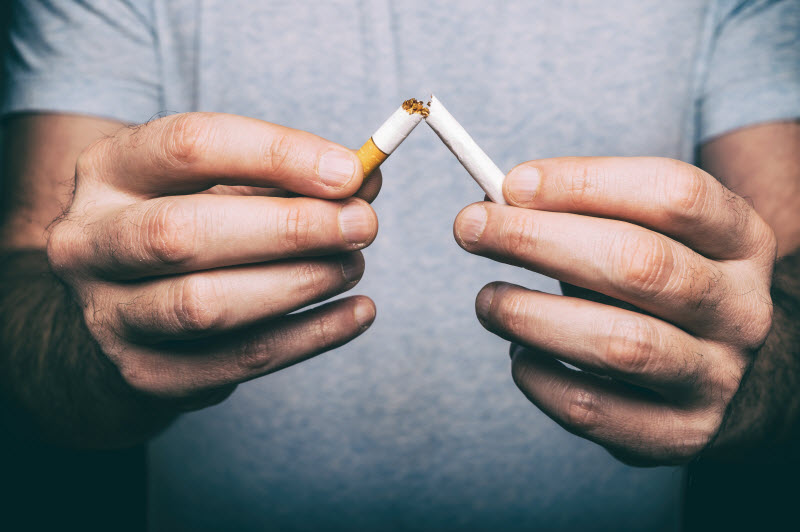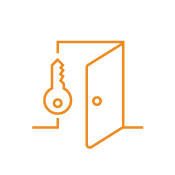Out of the ashes: How to kick your smoking habit

Everyone has their own reasons to quit smoking. It isn’t easy, but the good news is that if you’re committed to quitting, you can do it. This week is National Non-Smoking Week Is this the week you finally quit?
Here are some tips and ideas for kicking the habit.
- Pick a quit day – Choose a day, preferably in the near future, when you know that you’re free to focus on the task that lies ahead like a weekend or a day off work. Avoid dates when there is a celebration or a social event when you might be tempted to smoke. Circle the date on your calendar.
- Make sure you have support – It’s a fact that smokers who have a good support system in place are twice as likely to be successful. Let friends and loved ones know you’ve decided to quit, and ask them to be supportive, patient and encouraging. Join a support group like QuitCore, get help from Alberta Quits, or get counseling by phone. There are free quit lines across Canada - find out about one in your area.
- Know where your urge to smoke comes from – Make a list of the times you smoke throughout the day and what is going on at each time. For example, drinking coffee or alcohol, being with other smokers, finishing a meal, or celebrating a special event can all be occasions to light up. Once you know what your triggers are, you can plan to avoid them or steel yourself to fight the cravings.
- Have stop-smoking aids ready – There are many types of stop-smoking aids such as patches, gum, and lozenges available to help you butt out. Stock up on aids before your quit day. Then put them in spots where you know you tend to light up: by the television, near the coffee maker, in your car and at your desk at work.
- Rid yourself of reminders and enablers – Give your car and your home a thorough cleaning to get rid of smoke odour. Bring coats and sweaters to the cleaners. Throw out ashtrays and lighters. Ask smoking friends not to smoke around you.
- Control cravings – When cravings strike, there are a couple things you can try. Wait five minutes to give your craving a chance to pass. Inhale deeply through your nose and hold your breath for a count of five. Slowly breathe out through your mouth while you count to seven. Drink a glass of water slowly holding each sip in your mouth for a few seconds. Do something else to occupy your hands like knitting, Sudoku, or squeezing a stress ball.
- Be prepared for unpleasant withdrawal symptoms – Accept that nicotine withdrawal can make you feel like a different person. You may be irritable, anxious, sad and depressed. You may have trouble concentrating, be very hungry, or experience dry mouth, headaches and dizziness. This can last a few days or even weeks, and it can be unpleasant. Be patient with yourself, eat well, get lots of rest and exercise.
- Imagine the money you will save – Smoking is an expensive habit. Take a jar and each day add to it the money you would have spent on cigarettes. Think about what you want to do with your new-found cash. A getaway, dinner at an exclusive restaurant, or a day at the spa perhaps? Attach a picture to the jar of what you are saving for as further inspiration.
What happens to your body when you quit smoking?
As difficult as it is to quit, your body begins to thank you within 20 minutes of your last cigarette! Here’s what happens when smoke and nicotine no longer enter your system:
- Within 20 minutes after your last cigarette, your heart rate will begin to drop back toward a normal level.
- In 8 hours, your blood pressure is close to normal, oxygen in your blood increases to normal and carbon monoxide levels drop.
- In 48 hours, your nerve endings regenerate, and your sense of taste and smell start to return.
- In 2 to 3 weeks, your lung functioning capacity improves by 30 percent. You will enjoy exercise and physical activity more. Withdrawal symptoms will subside.
- In 1 month, your lungs will begin to repair themselves. You can fight off infection better, clear your lungs more easily.
- In 6 months, you’ll notice you’re coughing less, your nose isn’t stuffy, and your tiredness and shortness of breath improve.
- In 1 year, your risk of heart attack is cut in half.
- In 10 years, your risk of dying of lung cancer is cut in half.
- In 15 years, your risk of dying from a heart attack is the same as a person who never smoked!
Your body is the only one you will ever have. Making the decision to quit is one of the best things you can do for your health and the health of those you care about.
Speak to a Licensed Life Insurance Expert Now 888-594-3105







